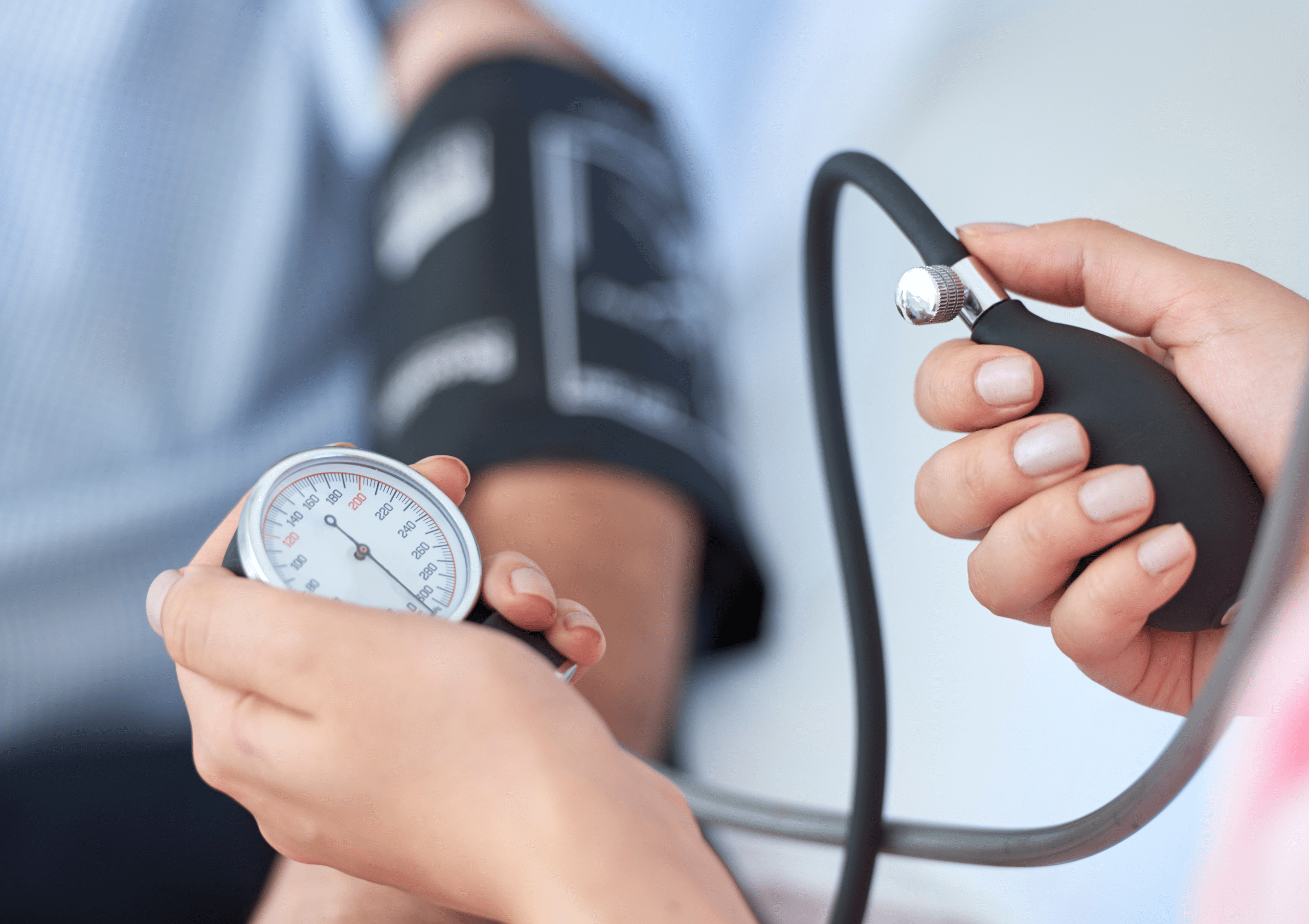High blood pressure, or hypertension, is often called the “silent killer” — and for good reason. It typically develops without obvious symptoms but can quietly wreak havoc on your cardiovascular system over time. At Colorado Springs Cardiology, we treat countless patients every year who are dealing with the long-term effects of high blood pressure. In a region like ours, where active outdoor living meets high elevation, understanding how hypertension affects blood flow is essential for protecting your heart health.

Blood pressure is the force of blood pushing against the walls of your arteries as your heart pumps. It’s measured in two numbers:
According to the American Heart Association (AHA), normal blood pressure is considered to be below 120/80 mmHg. Anything consistently above that may be classified as elevated or high blood pressure.
High blood pressure affects blood flow in several critical ways, here are 3 examples:
Constant high pressure can stretch and damage the inner lining of your arteries, known as the endothelium. Over time, this damage leads to:
When arteries narrow, your heart has to work harder to pump blood through your body. This increased workload leads to:
Two of the most affected organs are your brain and kidneys. Inadequate blood flow can result in:
Living at higher elevations — like Colorado Springs, which sits at over 6,000 feet above sea level — can influence how your body responds to high blood pressure.
At altitude, your blood oxygen levels are slightly lower, which means your heart and lungs have to work harder to compensate. For individuals with hypertension, this can intensify symptoms and complications. Research from the National Center for Biotechnology Information (NCBI) indicates that acute and chronic exposure to high altitude can exacerbate blood pressure irregularities.
That’s why it’s especially important for Colorado Springs residents to monitor and manage blood pressure closely, particularly when engaging in high-intensity activities like hiking, biking, or skiing.
While high blood pressure often goes unnoticed, some symptoms may signal a problem with your blood flow:
If you’re experiencing these symptoms regularly, it’s time to schedule an evaluation with a heart specialist.
Book an appointment with Colorado Springs Cardiology today to discuss your symptoms and get your blood pressure checked.
Unchecked hypertension can lead to life-threatening complications:
As arteries narrow and harden, the chance of clots increases. If a clot blocks blood flow to the brain, it can cause an ischemic stroke. The Centers for Disease Control and Prevention (CDC) notes that high blood pressure is the number one cause of strokes.
When your heart is forced to pump against consistently high pressure, it eventually weakens. The left ventricle, in particular, can enlarge and lose efficiency, leading to congestive heart failure.
Reduced blood flow in your limbs — especially the legs — can lead to pain, numbness, and difficulty walking. PAD is common in people with hypertension and is often misdiagnosed until it becomes severe.
High pressure can cause a portion of an artery to weaken and balloon out. If this aneurysm bursts, it can result in internal bleeding and potentially be fatal.
At Colorado Springs Cardiology, we use several non-invasive tools to monitor your blood pressure and evaluate blood flow, including:
Learn more about our diagnostic services here.
Living in our unique climate and terrain comes with special considerations. Here are some ways to control blood pressure and improve circulation:
At high altitudes, dehydration occurs faster. Dehydration can make your heart work harder and raise blood pressure, so be sure to drink plenty of water, especially if you’re active outdoors.
Many packaged and restaurant foods are high in sodium, which can spike your blood pressure. Stick to a heart-healthy diet like the DASH (Dietary Approaches to Stop Hypertension) diet, rich in:
More on the DASH diet from the National Heart, Lung, and Blood Institute.
Colorado Springs offers endless opportunities for hiking and biking, but if you have high blood pressure, avoid sudden bursts of strenuous activity. Instead:
Both alcohol and tobacco use can raise blood pressure and damage your arteries. If you need help quitting, speak with one of our specialists or your primary care provider.
If your blood pressure is consistently above 130/80 mmHg or if you’re experiencing symptoms of poor circulation, you should consult a cardiologist. Early intervention is key to preventing damage and restoring healthy blood flow.
At Colorado Springs Cardiology, our team is experienced in diagnosing and treating hypertension and the full spectrum of cardiovascular conditions. Whether you’re newly diagnosed or looking to improve your current treatment plan, we’re here to help.
We offer a variety of personalized treatment options including:
Our goal is to not only lower your blood pressure but to restore optimal blood flow throughout your body, reducing your risk of serious events like stroke or heart failure.
High blood pressure is more than just a number — it’s a serious condition that can silently damage your arteries, reduce blood flow, and increase your risk for heart disease, stroke, and other complications. For residents of Colorado Springs, the impact can be magnified by altitude and an active lifestyle.
Fortunately, hypertension is both detectable and treatable. With the right care plan, you can protect your arteries, restore healthy circulation, and live a full, active life in our beautiful city.
Don’t wait until symptoms become severe. Contact Colorado Springs Cardiology to schedule an appointment and take control of your blood pressure and blood flow today.